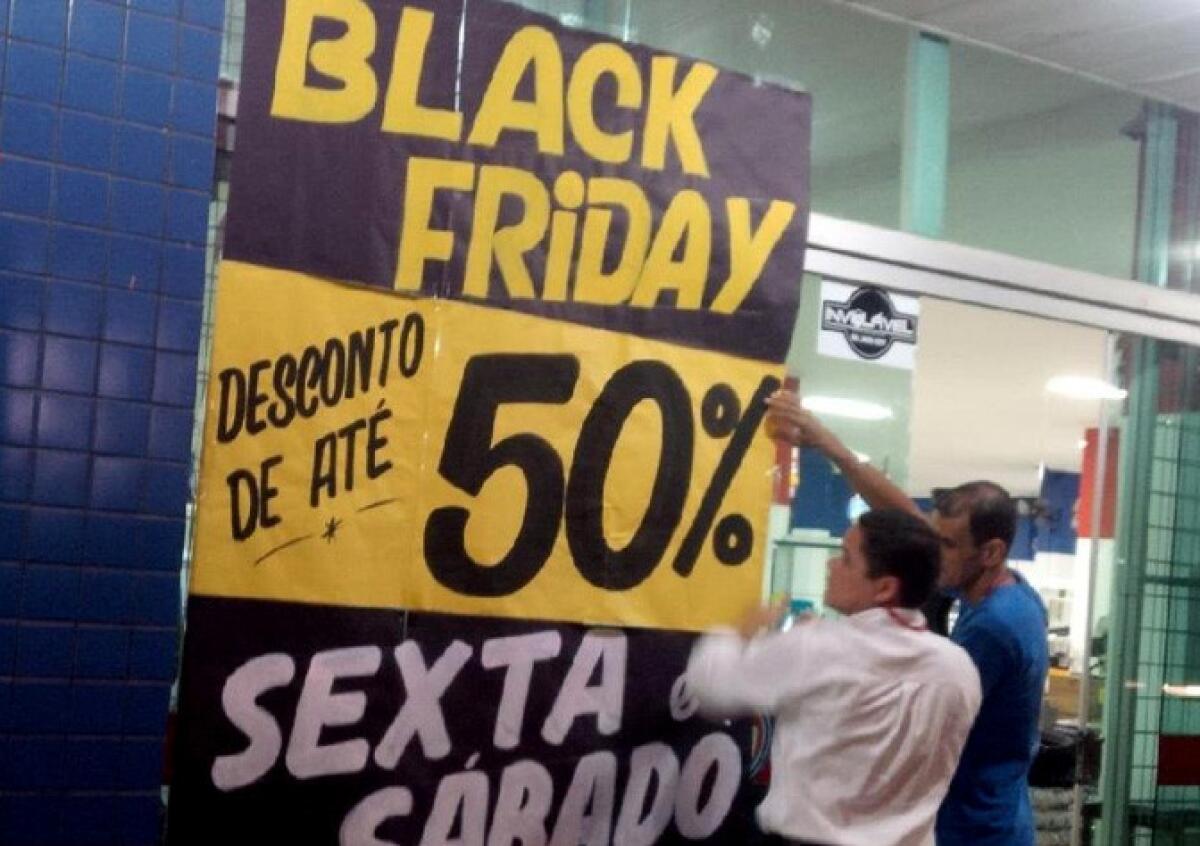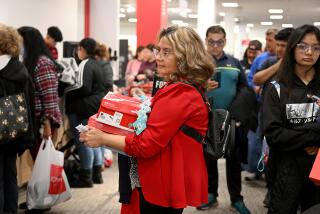Brazil’s Black Friday earns name Black Fraude for consumer complaints

- Share via
Reporting from Sao Paulo, Brazil — Although they don’t celebrate Thanksgiving and don’t have the day off on Friday, millions of Brazilians are taking part in a booming Black Friday of their own, and consumer protection authorities are working overtime to shield them from scams that have earned the annual sales event the nickname Black Fraude in recent years.
Black Friday is called here by its English name, rather than translated into Portuguese, to reflect the fact that it was imported wholesale from the United States in the last five years. Local media say sales today may be on pace to set a record of $470 million.
But Brazil’s consumer protection authorities were also working extra shifts to guard against manipulative practices they said have been commonplace.
“We decided to take preventative action,” said a spokesperson for the government’s Consumer Protection Department. “Last year we received a large number of complaints, to the point that the event became known as Black Fraude. Vendors were accused of raising prices just to lower them,” she said.
In Brazilian Portuguese, “fraude” means fraud, and comes close to rhyming with the English “Friday.”
Brazil’s media covered consumer sales in depth Friday, providing tips on the best deals and which ones to avoid, such as those offering impossibly spectacular rebates.
Since Brazilians were working Friday and online vendors were at the forefront of the Brazilian Black Friday sales, it is mostly a digital phenomenon, with families making purchases online. But there was some chaos throughout the country’s stores.
In downtown Sao Paulo, families lined up behind metal gates outside a large department store, some waiting to enter, some simply hoping their loved ones would finish their shopping and be out soon.
“I’ve been here a long, long time, waiting for my boyfriend, and I have no idea if he’s even still in there,” said Tamires Silva, a 19-year old retail assistant, as shoppers nearby ducked out into the street carrying big-screen TVs. “He was trying to buy himself a cell phone.”
In Brazil’s largest state, Sao Paulo, consumer protection authorities said they received 800 complaints by 4 p.m., mostly regarding sales promotions which turned out not to exist or whose prices changed at the last minute.
Over the last decade, domestic consumption has been one of the main drivers of Brazil’s economic growth. However, the country slipped into recession this year and could use a boost during the Christmas season. Despite sweltering summer heat here, malls hire men to don Santa Claus suits and promote Christmas shopping.
“My washing machine broke, and I just want to get a new one,” 65-year old massage therapist Marisa Guelao said as she peered through a window of a downtown department store at the long cash register lines. “I have no idea what’s going on here.”
Bevins is a special correspondent.
More to Read
Sign up for Essential California
The most important California stories and recommendations in your inbox every morning.
You may occasionally receive promotional content from the Los Angeles Times.










